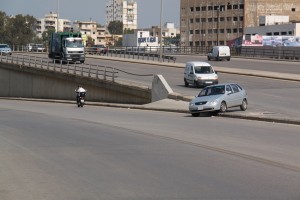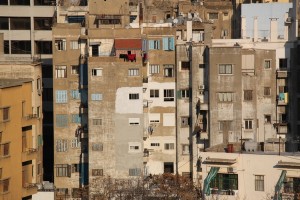Lebanon has long been featured on government lists of countries not to visit, even tasting a dubious notoriety as the No1 fascinating country that Uncle Sam doesn’t want you to visit, in a recent ranking. Peace is not a realistic term around here, and periods of calm are as reliable as good weather is in England. The proverbial clouds of war keep gathering in the Lebanon, as they are apt to do. Unlike in Tunis and Cairo, this is not an unusual occurrence. The will-they-won’t-they debate of armed combat is the small talk of the Lebanese like weather chit chat in old Blighty. Rain again? Looks like it.
That their homeland is constantly described as on the brink of war hasn’t stopped Lebanese expatriates returning year after year and their attachment to it is unbelievably, irrationally and touchingly deep. This is especially the case for those who were forced to flee during the war. Some came back after the 15-year long conflict, but others had become settled abroad and for them Lebanon became the land of the olden days, land of their rose-tinted childhood.
Still, when you ask them if they have plans to move back, most say no. When they return to visit the Lebanon of today, they know they could no longer live here. They find being on a constant knife-edge too much strain, or they have become too accustomed to stability, to proper roads, to water, electricity and internet on demand.
How do you adapt to a country which is persistently billed as on the brink of disaster? Well, I’ve registered with the British Embassy; I’ve read the WikiHow on what to do if taken hostage; I read the news every day. But there is a lot to be said for the Lebanese knack of getting more excited over the latest social event than the apparently ever-looming disaster.
Those who have stayed through the bitter war years, the assassinations and the government paralysis, do not pin their stress levels on the endless ebb and flow of political tension. They go about business as usual until the last minute, then placidly shut up shop and go to the mountain for a day or two until it all blows over.
Funnily enough the Lebanese complain more about poor utilities than living with the risk of war on their doorstep. I suppose they feel something really could be done about the failings of the infrastructure but don’t hold out the same hope for the ongoing soap opera of regional politics.
Resignation is valid form of psychological defence when you live in a tinderbox full of armed militia. The Lebanese have also learnt relativity. Civil war is a big deal (until you get used to it), random gunfights within earshot are a minor matter. The possibility of conflict is a trivial fact of life.
However, the Lebanese are not, as some portray them, a nation of daredevils and risk-takers. When things hot up, most locals go very quiet. Everyone has a strong political opinion, usually a family heirloom, polished regularly in public. And some are ready to enter the power struggle with arms. But many would prefer to continue having as little to do with the government as it has to do with them.
They have no desire to check out the action, to taste the excitement. They play safe, avoiding all contact with potential conflict areas. To the point that I think they are not just prudently staying away from conflict but actually avoiding any reminders of their country’s instability.
Expecting nothing from the shifting powers that be, they try to build a sense of security on an individual level. Here people have their own tanks, their huge 4x4s with tinted windows. The rich build their own fortresses, taking refuge on the urban hill of Achrafieh or climbing to safety in the foothills. They buy a second home in the mountains as a ski-base-cum-bunker. The not so rich get on with their lives.
After over a year here, I understand the value of burying one’s head in the sand. It is a key survival technique in a country where calamity is said to be on the horizon every day of the year. Come July, when I have someone else to worry about, I may feel differently, but for now I’m throwing my lot in with this tenacious bunch whose lives and loves are here. And having watched the political weathercock dance like a headless chicken in buffeting winds, it seems like the clouds may blow over, as they have so many times before.



